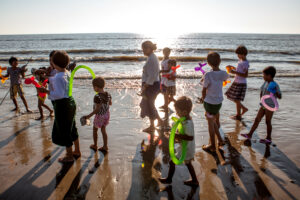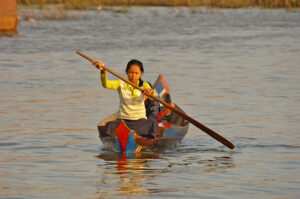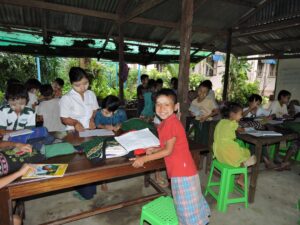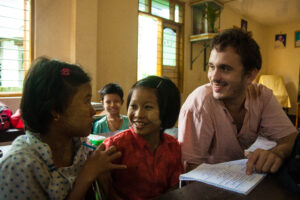Navigating the Educational Landscape: Climate Education – a ‘Peripheral Topic’ in Southeast Asia
Embarking on the grounds of Green School Bali, nestled along the Ayung River in Bali, children step into an educational realm deeply intertwined with nature. From bamboo classrooms to assignments addressing global issues, the school redefines traditional education, aiming to empower youth as community-inclined citizens both now and in the long run. Sustainability is at the middle of the academy’s charge, challenging global education norms.
Transforming Education Paradigms
Traditionally ingrained learning methods are yielding to real-world operations and impact-focused systems. However, such models are rare, especially in regions like Southeast Asia, where the broader perpetration of climate education has been challenging. There has been a constant drive for action to form learning concentrated on the process, the terrain and communal engagement, lesser precedence for governments.
Global Advocacy for Change
Hundreds of organisations, including the International Trades Union Confederation and Education International, have urged the UN Framework Convention on global natural action. They want new norms and intentions which can find themselves reverberating in classrooms across this region and also the world.

Education's Vital Role in Global Action

Education emerges as a crucial tool in addressing global challenges, potentially more impactful than investments in renewable energy. Youth education equips knowledge of vulnerability to extreme weather events in the developing world. While some countries include sustainability in their education plans, there remains gaps, inconsistencies, and injuries. UNESCO acknowledges the steep hurdles in Southeast Asia, despite some positive signs of an amenability to sustainable development education.
A policy review report concluded that action education “has not surfaced as an independent field” and is “still noticeably in its immaturity” in the region. It is vital to anticipate the scenarios where this emerging educational theme could transform into a central focus, establishing itself as an independent conception and a concentrated area in education.
Challenges and Progress in Southeast Asia
The divide between civic, pastoral, transnational, and state seminaries, coupled with challenges in addressing ethical differences, poses a general difficulty for education. This challenge is particularly pronounced when dealing with global climate change themes. Faryal Khan, a program specialist for education at UNESCO in Bangkok, acknowledges, “Formerly there are deeply bedded inequalities in education where access to indifferent education for the poor could indeed be a heavy challenge“. However, he also notes signs of gradual progress, citing initiatives like Indonesia‘s Adiwiyata Green Schools program, which integrates Environmental and Sustainable Development (ESD) into classrooms. Thailand and Vietnam both have sustainability erected into their public education fabrics, while Philippine seminaries concentrate on individual conduct, encouraging scholars to advocate for eco-friendly practices within the school premises and understand waste management.

Activism and Advocacy

Activists in the region aim to influence indigenous/ethnic minorities’ education departments to include tailored assignments on climate adaptation and a broader understanding of the anthropogenic causes of global climate change. Xian Guevarra, the public fellow for Youth Lawyers for Climate Action Philippines (YACAP), notes that “some preceptors are veritably open to changing their ways of tutoring. But as of directly, it’s veritably outdated and concentrated further on the individualities rather than holding the foremost polluters responsible”. Guevarra emphasises the need to shift the emphasis from “reduce, exercise, reclaim” and “live a zero-waste life” to systemic change for addressing the present climate crisis.
The journey toward comprehensive climate education in Southeast Asia is marked by challenges and promising initiatives. As education systems evolve, the region stands at the forefront of transforming climate education into a central focus, establishing it as an independent and crucial conception for the future.
